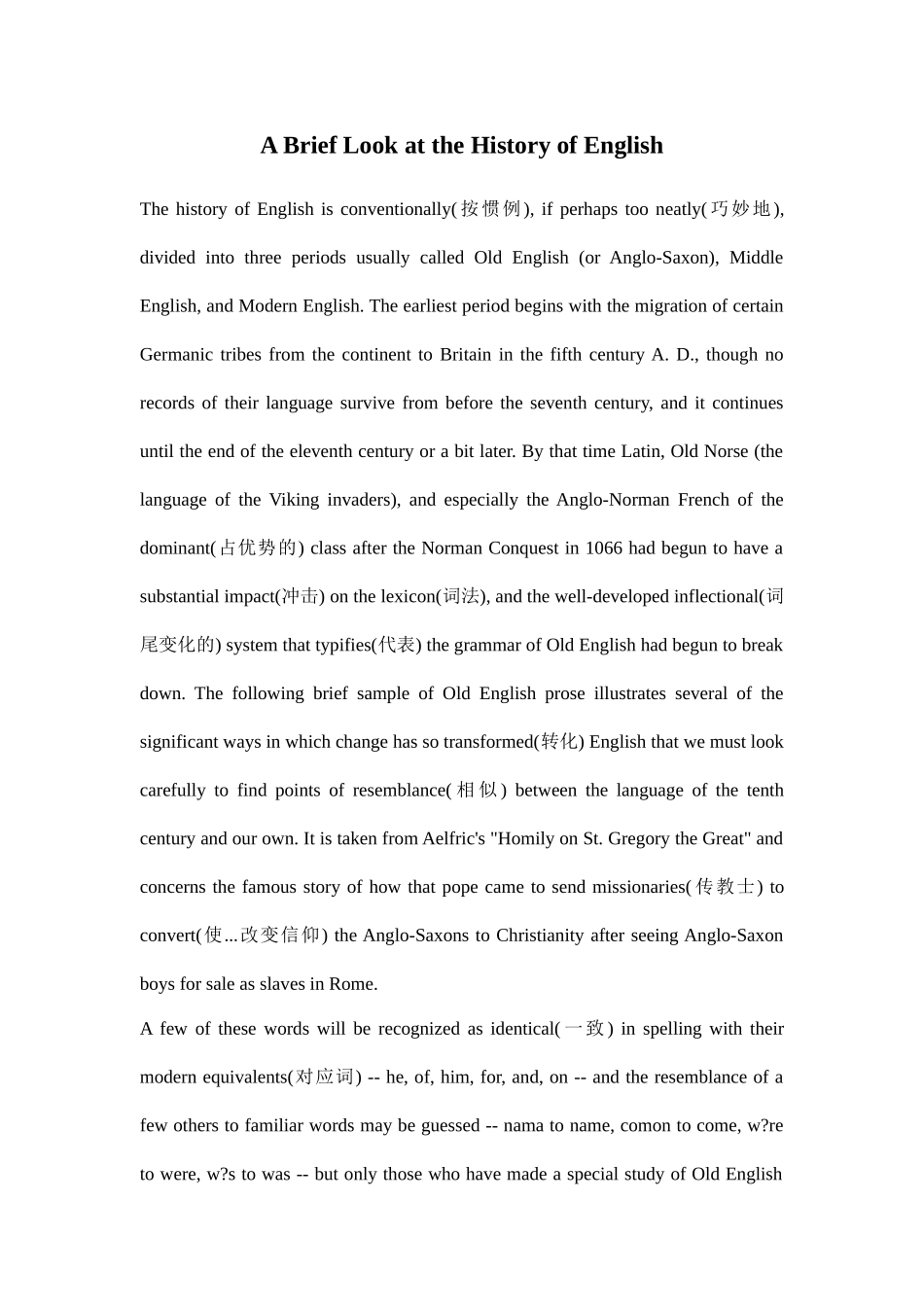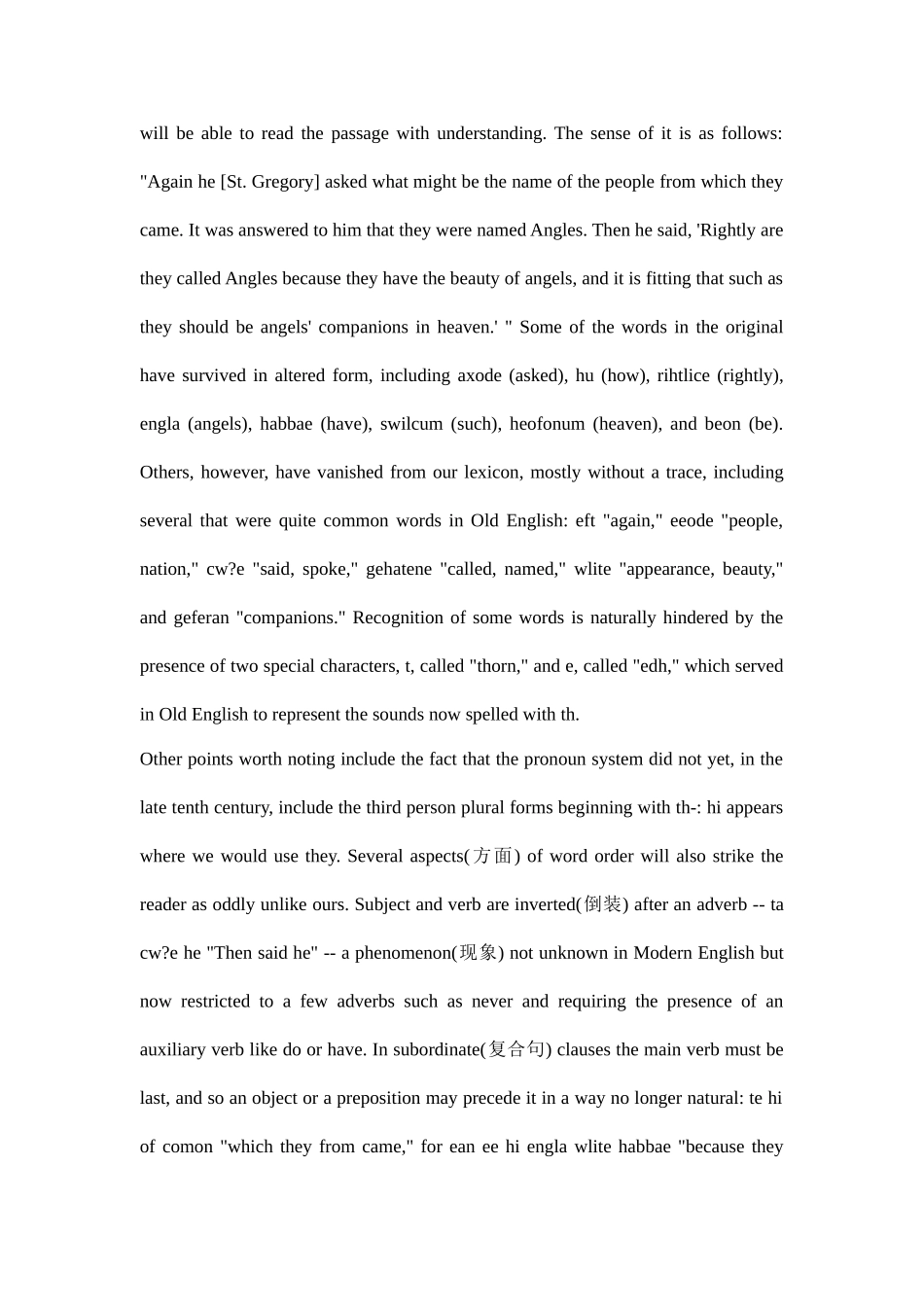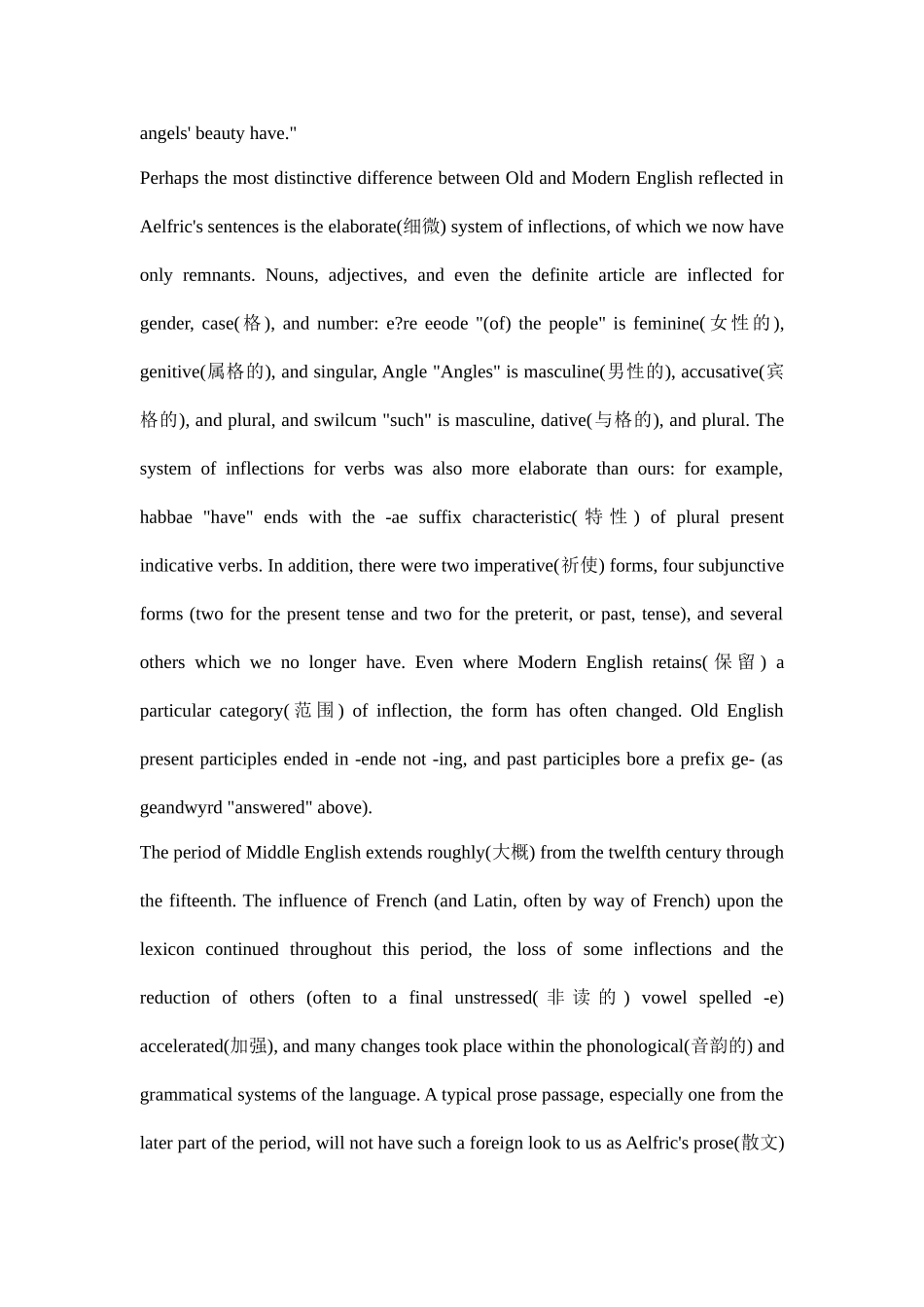A Brief Look at the History of EnglishThe history of English is conventionally( 按惯例), if perhaps too neatly( 巧妙地), divided into three periods usually called Old English (or Anglo-Saxon), Middle English, and Modern English. The earliest period begins with the migration of certain Germanic tribes from the continent to Britain in the fifth century A. D., though no records of their language survive from before the seventh century, and it continues until the end of the eleventh century or a bit later. By that time Latin, Old Norse (the language of the Viking invaders), and especially the Anglo-Norman French of the dominant(占优势的) class after the Norman Conquest in 1066 had begun to have a substantial impact(冲击) on the lexicon(词法), and the well-developed inflectional(词尾变化的) system that typifies(代表) the grammar of Old English had begun to break down. The following brief sample of Old English prose illustrates several of the significant ways in which change has so transformed(转化) English that we must look carefully to find points of resemblance( 相 似 ) between the language of the tenth century and our own. It is taken from Aelfric's "Homily on St. Gregory the Great" and concerns the famous story of how that pope came to send missionaries( 传教士) to convert(使...改变信仰) the Anglo-Saxons to Christianity after seeing Anglo-Saxon boys for sale as slaves in Rome.A few of these words will be recognized as identical( 一 致 ) in spelling with their modern equivalents(对应词) -- he, of, him, for, and, on -- and the resemblance of a few others to familiar words may be guessed -- nama to name, comon to come, w?re to were, w?s to was -- but only those who have made a special study...


